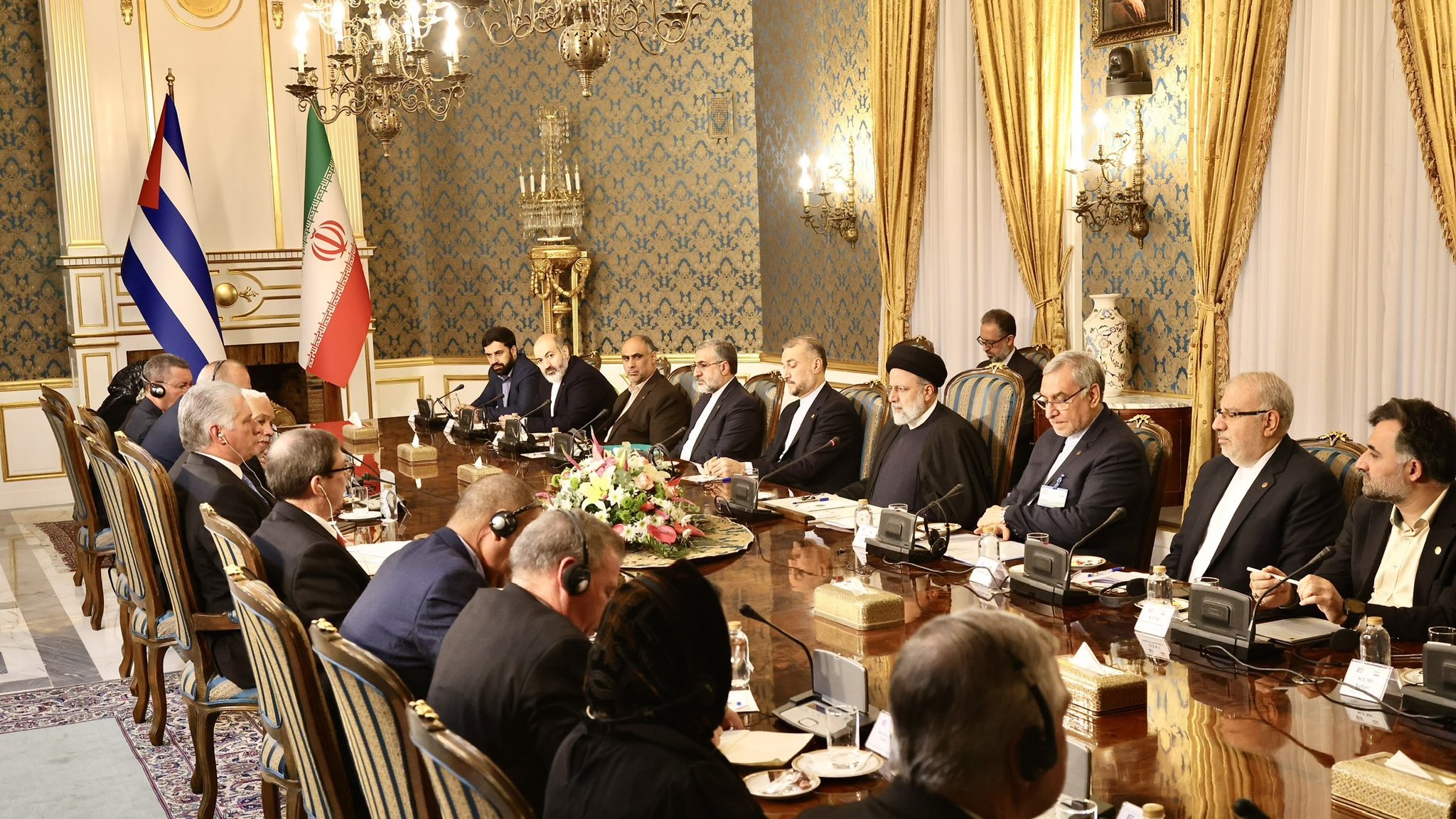Cuban President Miguel Díaz-Canel and Iranian President Ebrahim Raisi called for the creation of a global coalition of countries to protect the rights of Palestinians on Monday, December 4. Both countries criticized the global community for failing to stop the Israeli genocide in Gaza.
Díaz-Canel was on a two-day state visit to Tehran. He arrived on Sunday night with a delegation in order to strengthen bilateral cooperation in the fields of agriculture, health, science and technology, and energy sectors.
After their meeting on Monday, the presidents gave a joint press conference in which they called for the creation of a coalition to stop the Israeli genocide in Gaza and expressed the need to intensify existing efforts.
Raisi claimed that the world is doing nothing substantial to stop Israel’s genocide in Gaza and “the United Nations Security Council, the Arab League and other human rights institutions are not being effective in paralyzing the conflict.”
Raisi also accused the US and the west of supporting the Israeli genocide in Gaza by supplying it weapons and technological support.
Díaz-Canel demanded an immediate ceasefire in Gaza and called for global condemnation of the acts of genocide committed by the Israelis. He also reiterated the urgent need for creating an independent Palestinian state.
Almost 16,000 Palestinians, including close to 7,000 children, have been killed in Israeli bombings and ground offensives in the Palestinian territory of Gaza since October 7. Israel has refused to heed the global demands for an immediate humanitarian ceasefire despite the severe crisis faced by over two million Palestinians.
Mutual cooperation to fight illegal US sanctions
Both Iran and Cuba have been working to increase their bilateral cooperation as a way to counter the illegal unilateral coercive measures which the US has imposed on the countries.
For over six decades, the US has imposed a comprehensive blockade against Cuba which intensified in recent years under US President Donald Trump who added 243 addition sanctions against the island, activated Title III of the Helms Burton Law, and included Cuba on the State Sponsors of Terrorism. These measures have been maintained by current Democratic Party President Joe Biden.
The US has imposed sanctions on Iran since it unilaterally withdrew from the international deal on Iran’s nuclear program signed in 2016 also known as the Joint Comprehensive Plan of Action (JCPOA) in May 2018.
These sanctions have caused economic hardships in both countries, severely restricting their ability to conduct international trade and technological advances.
The countries have a long history of cooperation which acquired a new dimension with the visit of the Iranian president to Cuba in June this year. During that visit the heads of state agreed to develop their cooperation in various fields and signed deals to mitigate the impact of sanctions.
On Monday, both the countries signed seven new agreements related to fields of agriculture, science and technology, health and energy sectors among others. On Tuesday, Díaz-Canel addressed a meeting of business leaders in Iran inviting them to invest in Cuba.
Díaz-Canel became the first Cuban president to visit Iran in more than two decades. In 2001, the then president Fidel Castro visited Tehran.
When addressing the press conference on Monday, Raisi said that, “the Cuban president’s visit constitutes a historic turning point in relations between the two nations and there is great congruence of views between Iran and Cuba and a determination to enhance cooperation and coordination between the two countries.”





